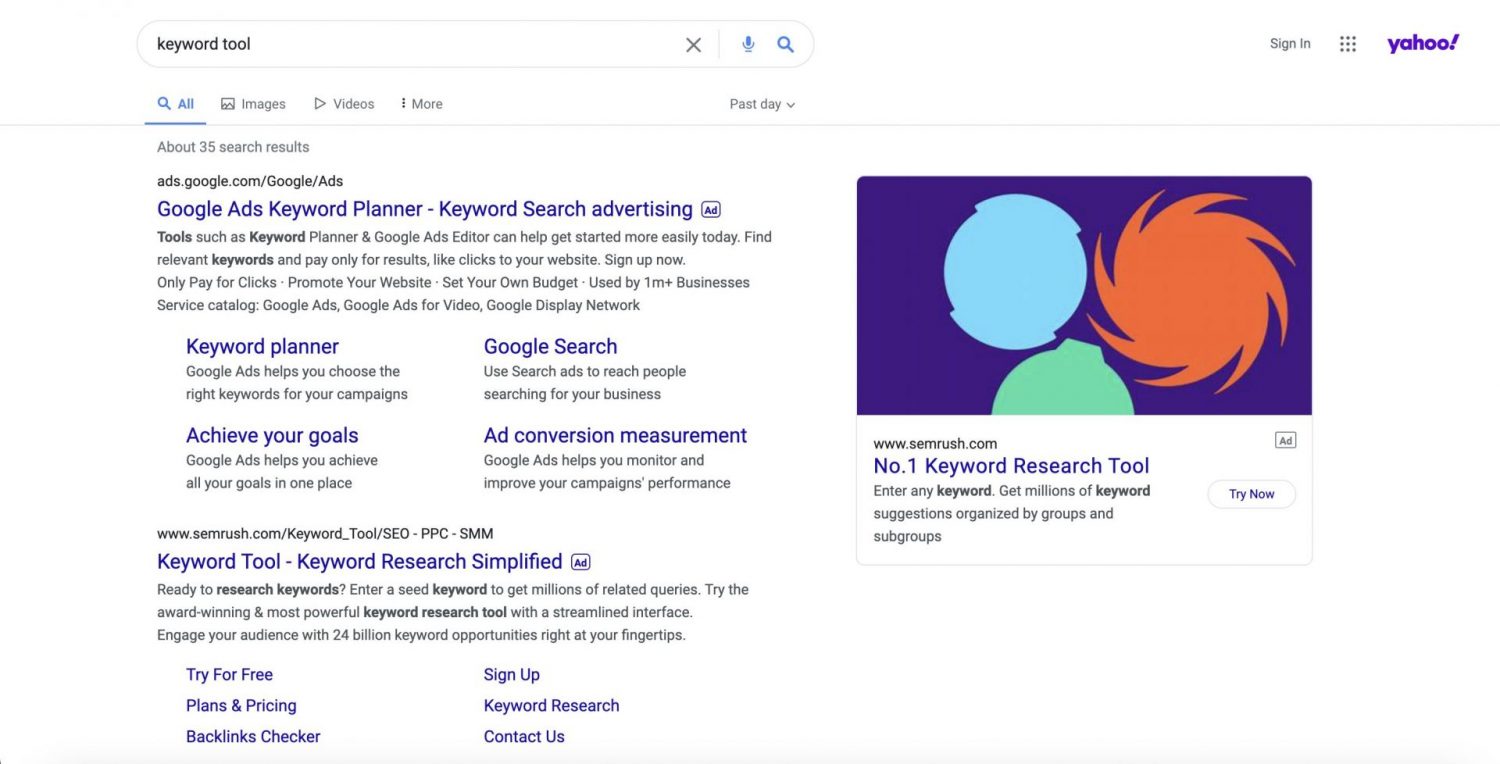Finding the right keywords is essential for online success. Keywords connect your content to what people search for.
In the vast digital landscape, knowing how to choose the best keywords can make all the difference. Keywords help improve your website’s visibility and attract the right audience. However, with so many options available, it can be overwhelming to know where to start.
Various tools can simplify this process. They provide insights into popular search terms and trends. Using the right tool can help you discover keywords that resonate with your target audience. This can lead to better content, higher traffic, and improved engagement. Let’s explore the best options to help you find relevant keywords for your needs.

Credit: blog.hubspot.com
Importance Of Relevant Keywords In A Content
Relevant keywords are essential for effective content creation. They help connect your content with your audience. Finding the right keywords can boost your visibility online. Using the right tool for keyword research can make this process easier. Understanding the importance of relevant keywords is crucial for any content strategy.
Role Of Relevant Keyword In Seo
Keywords are the backbone of search engine optimization (SEO). They help search engines understand your content. Here are key roles of relevant keywords:
-
Improved Visibility: Relevant keywords increase the chances of your content appearing in search results.
-
Targeted Traffic: They attract users who are looking for specific information.
-
Better Rankings: Using the right keywords can improve your ranking on search engines.
Consider this table showing the impact of keywords:
|
Keyword Type |
Impact on SEO |
|---|---|
|
Short-tail Keywords |
High search volume, but more competition. |
|
Long-tail Keywords |
Lower search volume, but less competition. |
Using a mix of both types can enhance your content strategy. Focus on keywords that reflect your audience’s search intent. This boosts engagement and helps to create relevant content.
Impact Of relevant keywords in content strategy
Relevant Keywords shape your content strategy in many ways. They guide your content topics and format. Here are a few impacts:
-
Content Creation and topical authority: Relevant Keywords help you decide what to write about and also help to give you topical authority in any niche
-
Audience Understanding: They reveal what your audience is searching for.
-
Help in content mapping and boost long run traffic growth : Help to do content mapping and interlinking that eventually boost traffic in long run
Types Of Keyword Tools That Help To Find Relevant Keyword
Finding relevant keywords is crucial for online success. It helps attract the right audience and improve search engine rankings. Many tools can assist in this task. They can be categorized into free tools and paid tools. Each type has unique features that cater to different needs.
Free Tools To Find Relevant Keywords
Free keyword tools are great for beginners or those on a budget. They provide basic keyword suggestions without any cost. Here are some popular free tools:
-
Google Keyword Planner: Offers keyword ideas based on your website or product.
-
Ubersuggest: Shows keyword ideas along with search volume and competition data.
-
Answer the Public: Generates questions and phrases related to your keyword.
These tools help you find keywords that are relevant to your content. They also show how often people search for these keywords. Below is a simple comparison table of these free tools:
|
Tool Name |
Main Feature |
Best For |
|---|---|---|
|
Google Keyword Planner |
Keyword ideas and volume |
Businesses and advertisers |
|
Ubersuggest |
Keyword suggestions and competition |
Content creators |
|
Answer the Public |
Questions and phrases |
Bloggers and writers |
Using these tools helps gather valuable insights. Start with them to build a strong keyword strategy.
Paid Tools To Find Relevant Keywords
Paid keyword tools offer advanced features. They provide detailed data and more keyword suggestions. Here are some popular paid tools:
-
SEMrush: Offers comprehensive keyword analysis and competitive insights.
-
Ahrefs: Known for its extensive database and backlink analysis.
-
keyword Chef : Provides keyword suggestions along with SERP analysis. best for content clustering
These tools come with a subscription fee but offer powerful benefits. They help you dive deep into keyword research. Below is a comparison of these paid tools:
|
Tool Name |
Main Feature |
Best For |
|---|---|---|
|
SEMrush |
Keyword analysis and competitor data |
Marketers and agencies |
|
Ahrefs |
Backlink analysis and keyword suggestions |
SEO professionals |
|
Keyword Chef |
Keyword suggestions and SERP analysis |
Content strategists |
Paid tools provide more accurate data and insights. They help you refine your keyword strategy for better results.
Google Keyword Planner To Find Relevant Keyword For Any Niche
Finding the right keywords is essential for online success. Google Keyword Planner is a powerful tool. It helps you discover relevant keywords for any niche. This tool is simple to use and provides valuable insights. Whether you run a blog, an online store, or a service-based business, Google Keyword Planner can guide you. It shows you what people search for and how to reach them effectively.
Features
Google Keyword Planner offers several features that make it user-friendly and effective. Here are some key features:
-
Keyword Suggestions: Get a list of keywords related to your topic.
-
Search Volume: See how many people search for a keyword each month.
-
Competition Level: Understand how tough it is to rank for a keyword.
-
Cost Estimates: Learn about the average cost per click for paid ads.
-
Filters: Narrow down your results by location, language, and more.
Here’s a quick overview of some features in a table:
|
Feature |
Description |
|---|---|
|
Keyword Suggestions |
Find related keywords based on your input. |
|
Search Volume |
Monthly searches for each keyword. |
|
Competition Level |
How competitive the keyword is for ads. |
|
Cost Estimates |
Average cost for clicks on ads. |
|
Filters |
Customize results based on various factors. |
These features help users make informed decisions. They can choose the right keywords to target their audience effectively.
How To Use
Using Google Keyword Planner is straightforward. Follow these simple steps to start finding relevant keywords:
-
Create a Google Ads Account: Sign up for a free account if you don’t have one.
-
Access Keyword Planner: Navigate to the “Tools & Settings” menu. Click on “Keyword Planner.”
-
Choose Your Option: Select “Discover New Keywords” or “Get Search Volume and Forecasts.”
-
Enter Keywords: Type in your main topic or existing keywords.
-
Review Results: Analyze the list of keywords provided. Look for search volume and competition.
-
Export Data: Download your keyword list for easy reference.
Each step helps you refine your keyword strategy. Focus on keywords with high search volume and low competition. This way, you can reach more people effectively.
Semrush To Find Relevant Keywords
Finding relevant keywords is essential for any successful online strategy. SEMrush is a powerful tool that can help you discover the right keywords for your content. It provides insights into keyword performance, competition, and trends. This makes it easier to target your audience effectively.
Key Features
SEMrush offers various features that make keyword research simple and effective. Here are some key features:
-
Keyword Overview: Get a quick summary of any keyword’s search volume, difficulty, and trends.
-
Keyword Magic Tool: This tool generates a vast list of keyword ideas based on your seed keyword.
-
Competitive Analysis: See what keywords your competitors rank for and identify gaps in your strategy.
-
Position Tracking: Monitor your keyword rankings over time and adjust your strategy accordingly.
Here’s a table summarizing the key features:
|
Feature |
Description |
|---|---|
|
Keyword Overview |
Summarizes search volume and competition. |
|
Keyword Magic Tool |
Generates keyword ideas from a seed keyword. |
|
Competitive Analysis |
Identifies competitor keywords and gaps. |
|
Position Tracking |
Tracks keyword rankings over time. |
These features help you gather valuable data for your SEO efforts. You can create content that meets audience needs. With SEMrush, you have a clear path to finding the right keywords.
Benefits
Using SEMrush for keyword research has many benefits. It saves time and enhances your SEO strategy. Here are some advantages:
-
Data-Driven Decisions: Access real-time data to make informed choices.
-
Improved Rankings: Target keywords that boost your visibility in search engines.
-
Comprehensive Insights: Understand keyword trends and user intent better.
-
Competitive Edge: Learn from competitors to stay ahead in your niche.
These benefits lead to better content and higher traffic. Here’s a quick breakdown of the benefits:
|
Benefit |
Description |
|---|---|
|
Data-Driven Decisions |
Use real data to guide your content strategy. |
|
Improved Rankings |
Increase your chances of ranking higher in search results. |
|
Comprehensive Insights |
Gain a deeper understanding of audience needs. |
|
Competitive Edge |
Stay informed about competitor strategies. |
Overall, SEMrush is a valuable tool for anyone serious about their online presence. It helps you find relevant keywords and optimize your content effectively.
Ahrefs Keywords Explorer
The right tool can make a big difference in finding relevant keywords. One popular choice is the Ahrefs Keywords Explorer. This tool provides valuable insights. It helps users discover keywords that can improve their content’s visibility. Using Ahrefs can guide you to choose the best words for your audience.
Unique Tools
Ahrefs Keywords Explorer stands out for its unique features. It offers a wide range of tools to help with keyword research. Here are some key features:
-
Keyword Suggestions: Find related keywords based on your input.
-
Search Volume: See how many people search for a keyword each month.
-
Keyword Difficulty: Understand how hard it is to rank for a keyword.
-
Click Metrics: Discover how many clicks a keyword gets on average.
These features make it easy to choose the right keywords. The tool also shows keyword trends over time. This helps users see if a keyword is getting more or less popular.
User Experience
User experience is crucial for any tool. Ahrefs Keywords Explorer is designed to be user-friendly. The interface is clean and easy to navigate. Users can quickly find what they need without confusion.
When you enter a keyword, the results load fast. You can see all the important data in one place. This saves time and effort. The tool also provides helpful tips along the way.
Users can filter results based on different criteria. This makes it simple to focus on the most relevant keywords. Here are some ways to customize your search:
-
Filter by country or region.
-
Sort results by search volume or difficulty.
-
Select specific types of keywords, like questions or phrases.
Ahrefs also offers great customer support. Users can find answers in a detailed help center. Tutorials and guides are available for all skill levels. This makes it easy for anyone to start using the tool effectively.

Credit: dataforseo.com
Answer The Public To Find Relevant Keywords
Finding the right keywords is essential for your online content. Keywords help connect your content with the audience searching for it. One tool that can assist in this process is Answer the Public. This tool offers unique insights into what people are asking online. It generates a visual map of questions and phrases related to your keywords. Using this tool can guide your content strategy effectively.
Basic Functionality
Answer the Public works by gathering data from search engines. It shows what people are searching for. Here are some key features:
-
Question Generation: It provides a list of questions related to your keyword.
-
Prepositions: The tool shows phrases that include your keyword.
-
Comparisons: It suggests comparisons that people often make.
-
Visual Data: Users can see the results in a visual format. This makes understanding trends easier.
The data is organized into categories. You can view:
|
Category |
Description |
|---|---|
|
Questions |
Common queries related to your keyword. |
|
Prepositions |
Common phrases using your keyword. |
|
Comparisons |
What people compare your keyword with. |
This structured data helps in brainstorming content ideas. You can target specific questions and phrases. This way, you create content that meets audience needs.
Limitations For The Free Version
The free version of Answer the Public has some limitations. Users can access only a limited number of searches per day. This can be a challenge for those needing extensive research.
-
Limited Searches: Only a few searches are allowed daily.
-
No Export Option: Users cannot export data to spreadsheets.
-
Visual Limitations: Some visual data may not be available.
These limitations may restrict more in-depth keyword research. Consider upgrading for more features if you need extensive data. However, the free version still provides valuable insights. It’s helpful for quick content ideas and basic keyword research.
Keyword Chef To Find Relevant Keywords
Finding the relevant keywords is essential for any niche. Because relevant keywords not only help to increase the topical authority but also help to connect our content with the audience. One tool that stands out for this task is Keyword Chef. This tool helps users discover relevant keywords with ease. It provides insights into keyword performance, competition, and search volume. With Keyword Chef, you can improve your SEO strategy effectively.
How To Use It To Find Relevant Keyword
Using Keyword Chef is straightforward. Follow these steps to find relevant keywords:
-
Sign Up: Create an account on the Keyword Chef website.
-
Enter a Seed Keyword: Start with a basic keyword related to your topic.
-
Choose Filters: Use filters to narrow down your results. Options include:
-
Search Volume
-
Keyword Difficulty
-
Cost Per Click (CPC)
-
-
Analyze Results: Review the list of suggested keywords. Look for those with a good balance of volume and low competition.
-
Select Keywords: Choose the keywords that fit your content best. These will help you rank higher in search engines.
Keyword Chef also offers a unique feature: it shows keyword ideas based on what real people search for online. This can lead to discovering long-tail keywords that are often overlooked.
Use the table below to understand some key features of Keyword Chef:
|
Feature |
Description |
|---|---|
|
Keyword Suggestions |
Find related keywords based on your seed keyword. |
|
Search Volume Data |
See how many people search for each keyword. |
|
Competition Metrics |
Evaluate how hard it is to rank for each keyword. |
|
Long-Tail Keywords |
Discover less common keywords with specific intent. |
Why Its Important To Choose The Right Tool
Choosing the right tool to find relevant keywords is crucial for your content strategy. The right tool can help you connect with your audience. It ensures your content reaches those who need it. With many options available, understanding how to choose wisely is essential. A good keyword tool can make the difference between being seen or overlooked online.
Assessing Needs
Before picking a keyword tool, assess your needs. Different projects require different features. Think about what you want to achieve. Here are some questions to help:
-
What type of content are you creating?
-
What is your target audience?
-
How much data do you need?
-
What is your budget?
Understanding these aspects can narrow your options. For example, a blog might need a simple tool. An e-commerce site may require more advanced features. Consider these points:
|
Need |
Recommended Tool |
|---|---|
|
Basic Keyword Research |
Google Keyword Planner |
|
Competitive Analysis |
SEMrush |
|
Long-Tail Keywords and relevant keywords |
Keyword Chef |
Assessing your needs helps you focus on tools that fit your strategy. This makes your keyword research more effective.
Comparing Features
Once you know your needs, compare the features of different tools. Not all tools offer the same functions. Here are some key features to consider:
-
Keyword Suggestions: Look for tools that provide relevant keyword ideas.
-
Search Volume Data: This shows how many people search for specific keywords.
-
Competition Analysis: Understand how hard it is to rank for a keyword.
-
User Interface: A simple design makes it easier to use the tool.
For a clearer view, here’s a comparison of popular tools:
|
Tool |
Keyword Suggestions |
Search Volume |
Competition Analysis |
User Interface |
|---|---|---|---|---|
|
Google Keyword Planner |
Yes |
Yes |
No |
Simple |
|
SEMrush |
Yes |
Yes |
Yes |
Complex |
|
Keyword Chef |
Yes |
Yes |
No |
Simple |
Compare features based on your specific needs. This helps you choose the right tool for your project.
Conclusion
Finding the right keywords is essential for online success. Tools like Google Keyword Planner and Ubersuggest can simplify this process. They help you discover terms that people often search for. Use these tools to boost your content’s visibility. Remember, the goal is to connect with your audience. Relevant keywords can lead to more visitors and better engagement. Start exploring these tools today. Your website deserves to be found by the right people. Take the first step to improve your online presence.

